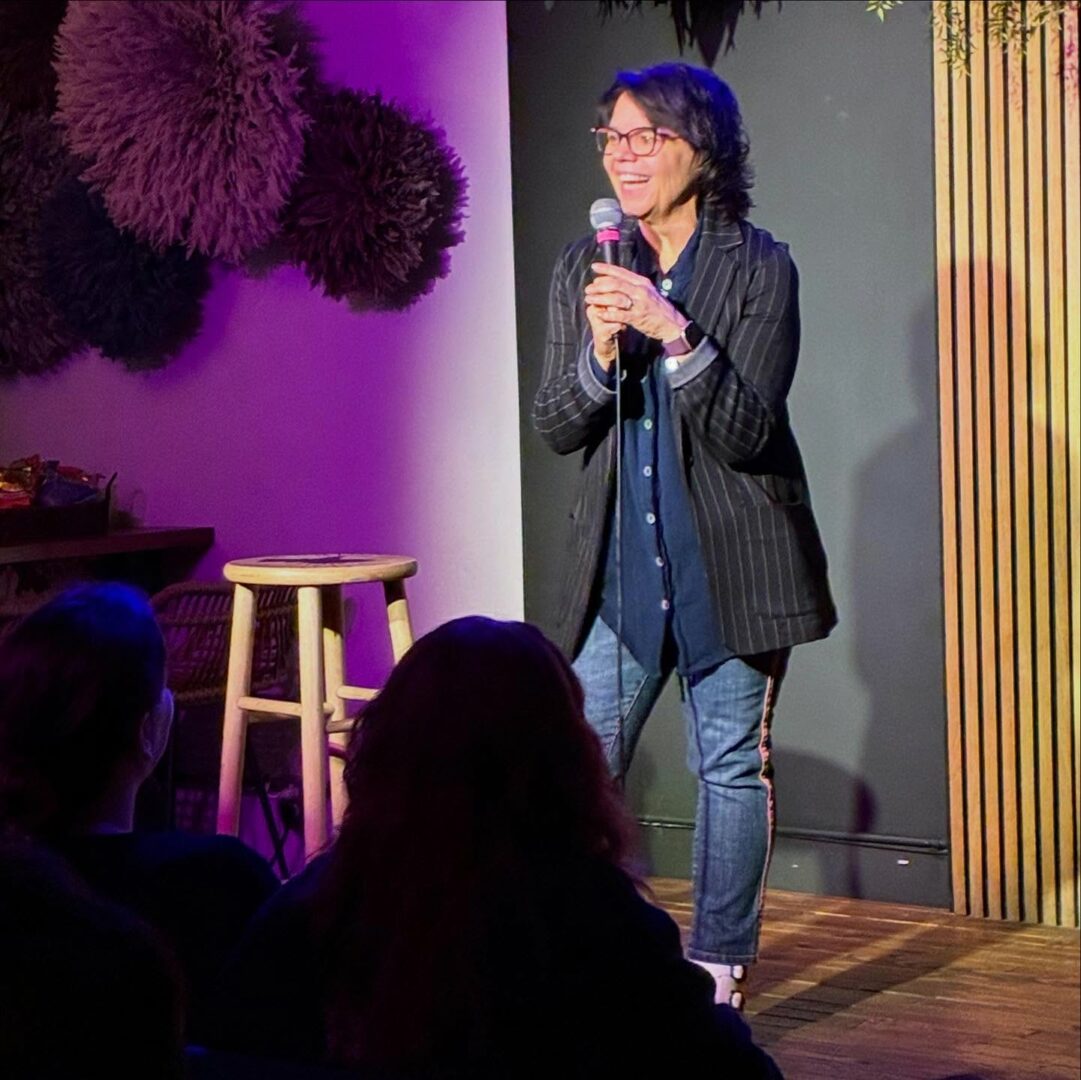We were lucky to catch up with Laura House recently and have shared our conversation below.
Hi Laura, so happy to have you on the platform and I think our readers are in for a treat because you’ve got such an interesting story and so much insight and wisdom. So, let’s start with a topic that is relevant to everyone, regardless of industry etc. What do you do for self-care and how has it impacted you?
This is sort of a mix of confidence, self-care, imposter syndrome. See where you think it fits….
I did stand-up the other night and the set was fine. Not great, but fine. Immediately, my brain tried telling me that it sucked, and I sucked, and why do I even do this. I call this my “How to Hate Yourself” voice. Because when I listen to it, that’s what happens. My inner critic tells me if it wasn’t amazing, it must’ve been terrible. No middle ground, no room for “fine.”
This has been an issue for a long time that I’ve had to learn to deal with. And honestly? Learning to counter that voice, learning actual self-care instead of just self-destruction, has been the difference between having a career (and a life) and actually enjoying one.
When I was in my 20’s I tried my big dream: stand-up comedy. After a year of open mics in Austin, Texas, I was discovered by MTV and cast in their first sitcom, Austin Stories. So, pretty young, my first showbiz job was starring on a TV show as myself. I was flown to New York and LA, went to premieres and the VMAs, signed autographs, and landed a big agent at William-Morris. It was great.
But I wasn’t really ready for it, to be honest. I was afraid I had skipped too many steps and didn’t really belong and would buckle under the pressure. Perfectionism. Impostor syndrome. The whole deal. I tried to cover it all up with hustle. And drinking. And dating. And cupcakes. I guess my top three addictions are guys, pies, and booze.
Despite all that, I managed to build what looked like a successful career. I wrote for The George Lopez Show, the Emmy-winning Samantha Who?, and CBS’s hit series Mom. I served as showrunner on the BAFTA-winning BBC series Secret Life of Boys—we were even nominated for an International Emmy. I sold five network TV pilots and worked on shows for Comedy Central, HBO, NBC, Amazon, and Nickelodeon. My comedy album Mouth Punch plays regularly on Sirius XM.
But underneath all those credits, I had developed a self-destructive pattern: big success, then fall backwards. For a long time, I thought success was all that mattered. I didn’t know how to balance it with self-care. I recklessly pursued it, white-knuckling my way through writing rooms, often at the expense of my own health and sanity. But if you’re making yourself so crazy that you can’t even enjoy your success, what’s the point?
I hit a breaking point and got sober. But later I hit another one: I had to lose 100 pounds. I was sober, I was professionally successful, but I was still using food to cope with everything I didn’t want to feel. When I finally got help and put down the extra food, all the feelings I’d been burying came up. All the stuff I’d actually needed to deal with the whole time Perfectionism, fear, and the belief that I was never enough became apparent. I’d just been covering it up with various distractions.
Once I put down all my cope-addictions, I had to deal with wanting to be perfect, wanting to be “better,” wanting every set to be “amazing”—whatever that even means. That’s when the real work began. And when I lost the extra weight.
Here’s what actual self-care looks like for me now:
I’ve learned to counter my “How to Hate Yourself” voice by looking for the truth. I talk myself through it. Did that set actually suck, or did just a few lines not go over? It wasn’t perfect, but that doesn’t mean it was terrible. Let’s look at it right-sized. What can I learn from this (other than that I suck and should totally quit)?
I’ve also learned to look for the wins, especially when things don’t go as planned. I’ve been fired a few times, and it’s easy to focus on the negative side—that’s definitely my brain’s go-to. So I’ll write a list of the wins: I met great friends, I had a new experience, I got better at pitching, I got healthcare for another year, I have another credit, I know better how to prepare for the next job.
I thought I had to live at 100 mph. It’s so annoying to admit this because my parents preached moderation, but they were right. Slow and steady. Slowing down, focusing, stopping to actually smell the flowers—these were the last things I wanted to do. But ultimately, they’re the best things I can do.
The impact on my effectiveness has been huge. I’m much more comfortable onstage and off. Because I’m unconcerned with how I’m perceived, I’m unapologetically myself. Because I’m not beating myself up, I’m much more present to connect with people. Because I’ve learned to ask for help, I reached out to a talented friend with an idea, and together we sold it to Nickelodeon. HUGE WIN! And super fun to write.
Turns out, I get much bigger things accomplished when I focus on the small steps. When I’m not trying to be perfect, I can actually be effective AND enjoy myself. And when that “How to Hate Yourself” voice shows up after a “fine” set? I can tell it to FO. Fine is good enough.
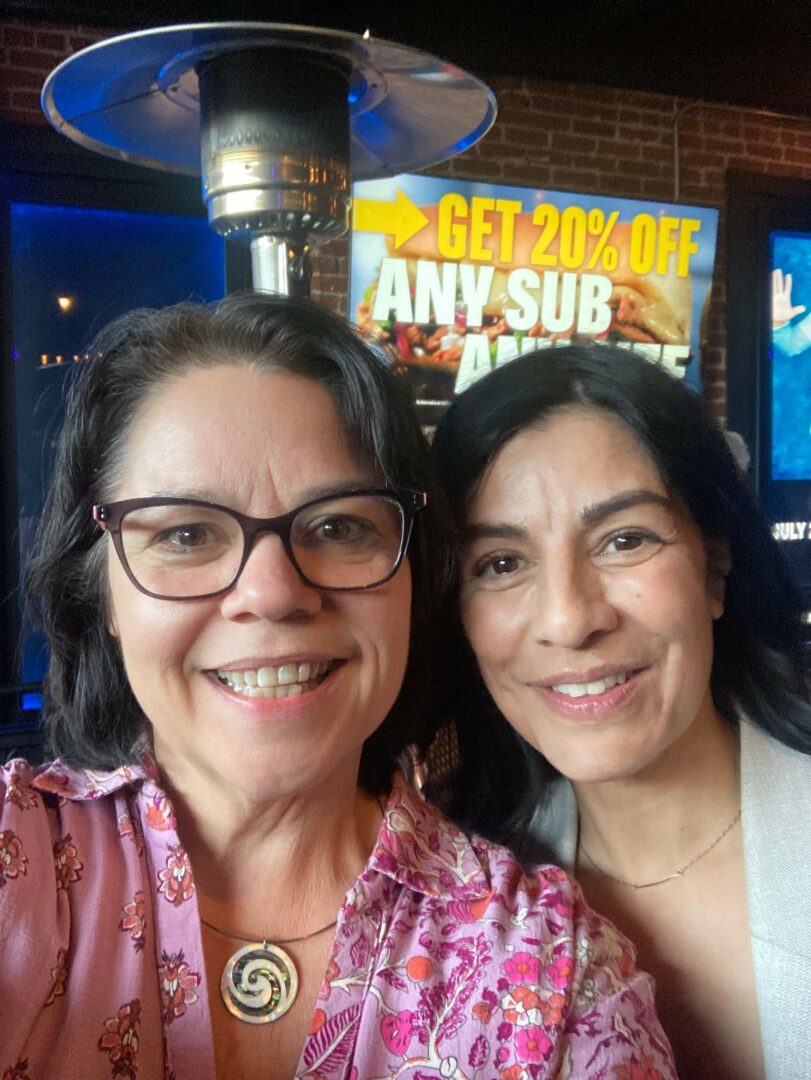
Thanks for sharing that. So, before we get any further into our conversation, can you tell our readers a bit about yourself and what you’re working on?
I’m a comedian and TV comedy writer. But lately I’ve been loving coaching people with their shows and stories. I co-teach a class at The Crow comedy club in Santa Monica called Storyectomy. Along with the Crow owner, Nicole Blaine, we teach people, often non-performers how to talk about difficult things –onstage, and with humor. I’ve taught several with people who have had or been affected by cancer. And we have another class for people who’s experienced being unhoused. I love comedy. And infusing it into grief and pain is so healing. I also coach stand-ups to connect more to their voice in their writing and performing. I help them get their hourlong specials together. And I help professionals add humor to their talks and presentations. Comedy belongs everywhere. I even sprinkle it into my meditation classes.
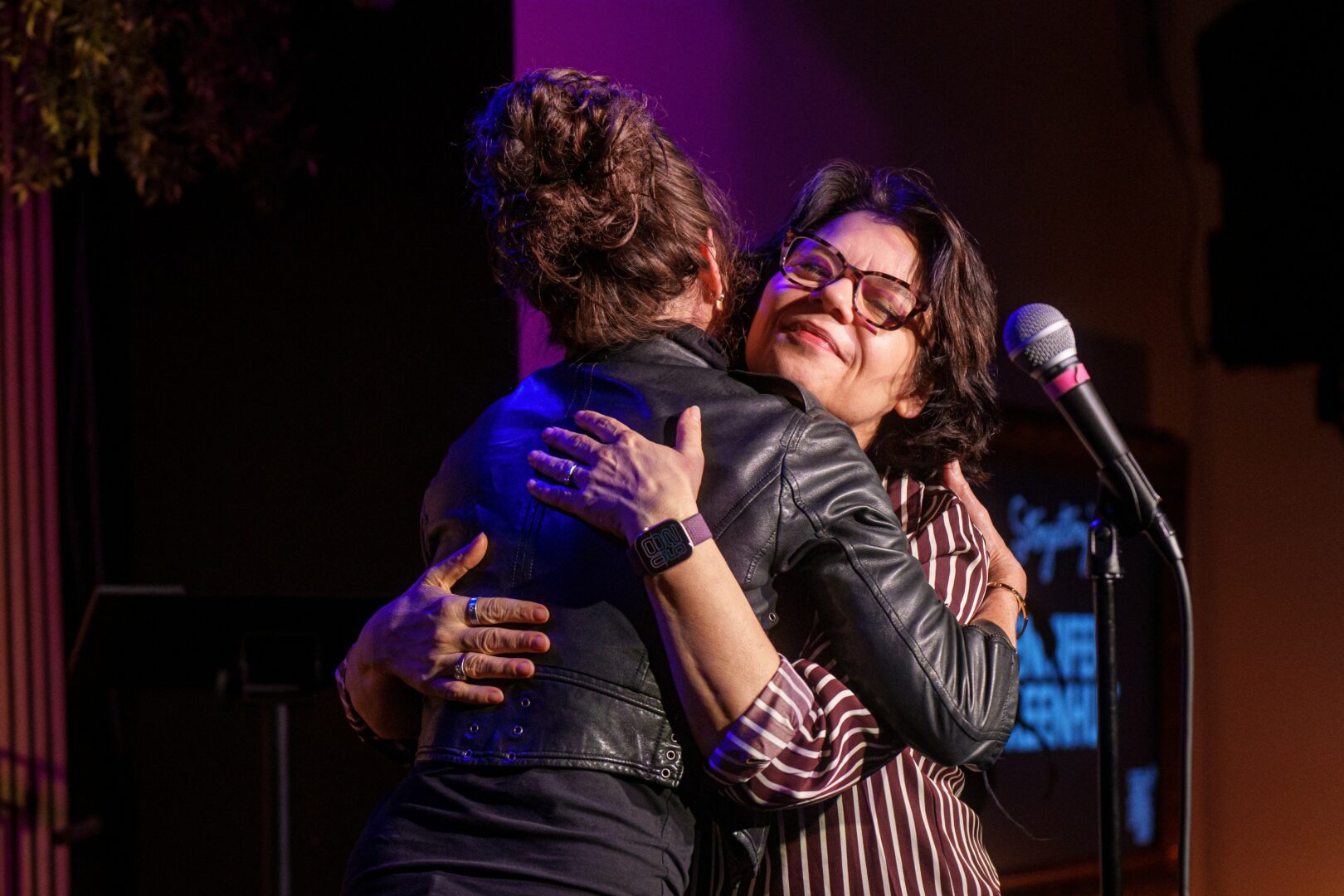
If you had to pick three qualities that are most important to develop, which three would you say matter most?
My best input is this: Realizing that every tiny thing counts. For a long time I dismissed tiny victories and only looked for big wins. But the truth is, big wins are comprised of tiny victories. For example, Last summer I successfully learned to stand-up paddle board. This was HUGE for me because I’d lost 80 pounds at the time and could not have done it prior. And I failed for a full day before I could do it. When I was standing on the board, I realized the win wasn’t just in the moment of cruising around the lake. The win was all the cucumbers I ate, healthy food I prepped, help I asked for, exercises I did, sleep I got, etc in the past two years leading up to it.
Also, persistence. Keep going. I have had a lot of rejections. Not getting roles, not getting staffed to write on shows, not getting repped by someone. Not every profession has that. It hurts. Sometimes it’s hard to keep going. But I do what I love. So what else am I going to do? Instead of quitting, take a break, refresh, then look for new ways in.
And finally, learn to let go. Release control. One of the best things I’ve ever been told was to get a post-it note, and write on it, “IT’S NOT GOING TO HAPPEN LIKE THAT.” And put it somewhere I’ll see it every day, like on my computer or a mirror. Then get another post-it note and put it where I’ll see it, too. Like, where I walk out the door. On the 2nd post-it, write, “IT’S NOT GOING TO HAPPEN LIKE THAT EITHER.” When I want something I instantly form an idea of how it will happen. But that’s not how it’s going to happen. Or like Plan B either. Do the work, and let the results happen however they happen. They’re going to anyway.
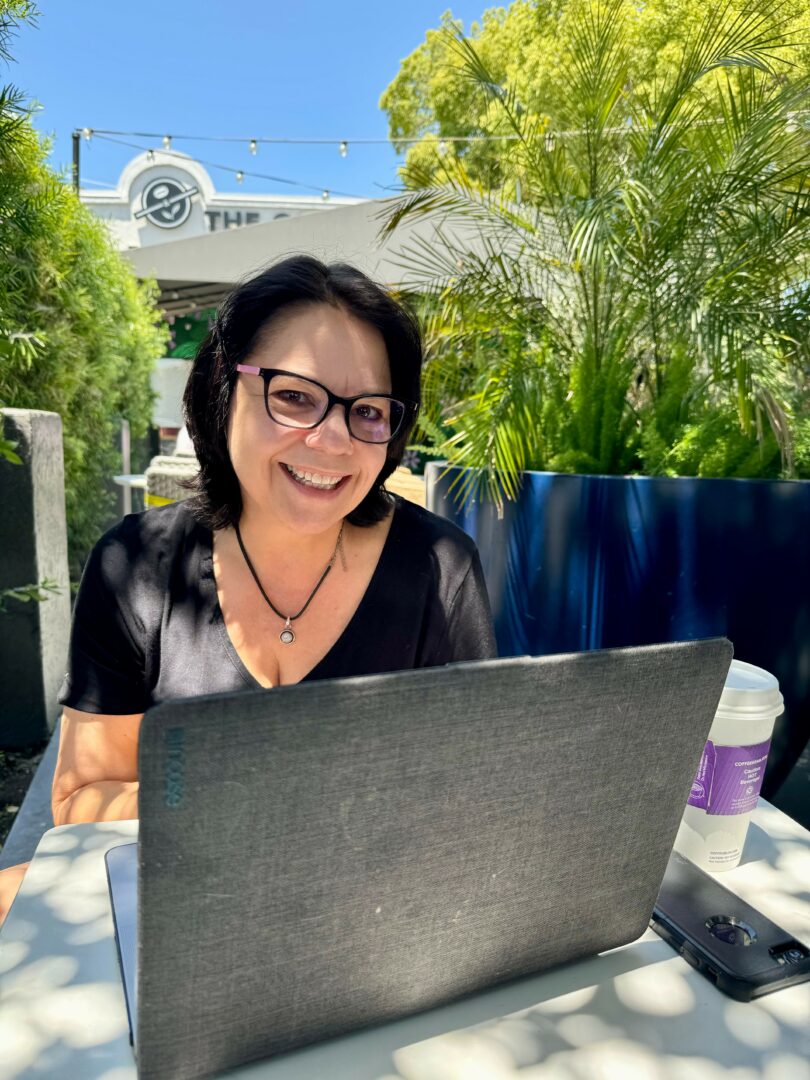
Tell us what your ideal client would be like?
I love working with people who aren’t afraid to fail. When we don’t try to “get it right,” we can try things and see how they go. That’s really the only way to know if comedy works, anyway. There’s a fun fearlessness we get when we stay curious.
Contact Info:
- Website: https://laurahouse.com
- Instagram: @imlaurahouse
- Facebook: @imlaurak
- Youtube: @imlaurahouse
- Other: Substack: Too Much and Never Enough
https://substack.com/@laurahouse
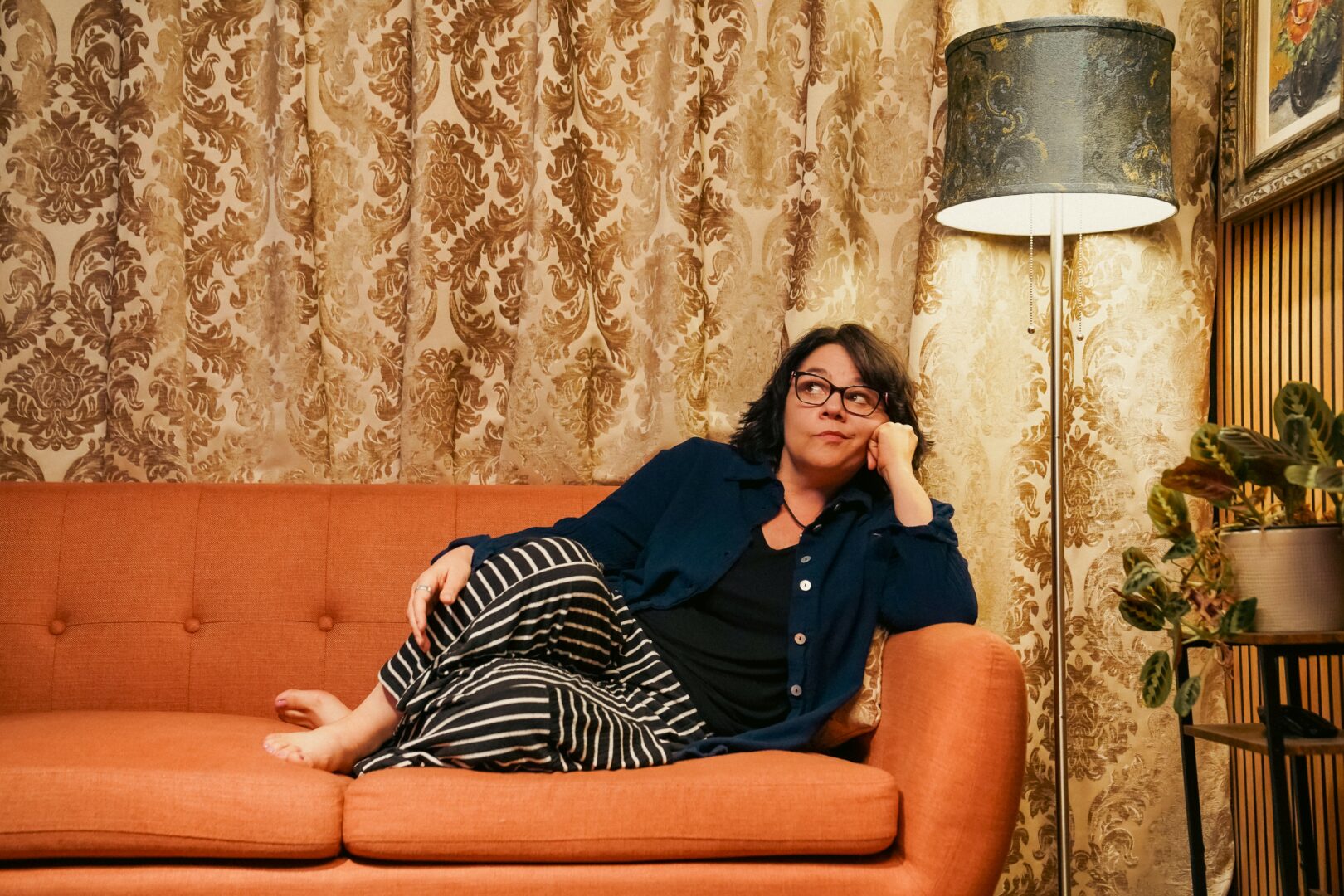
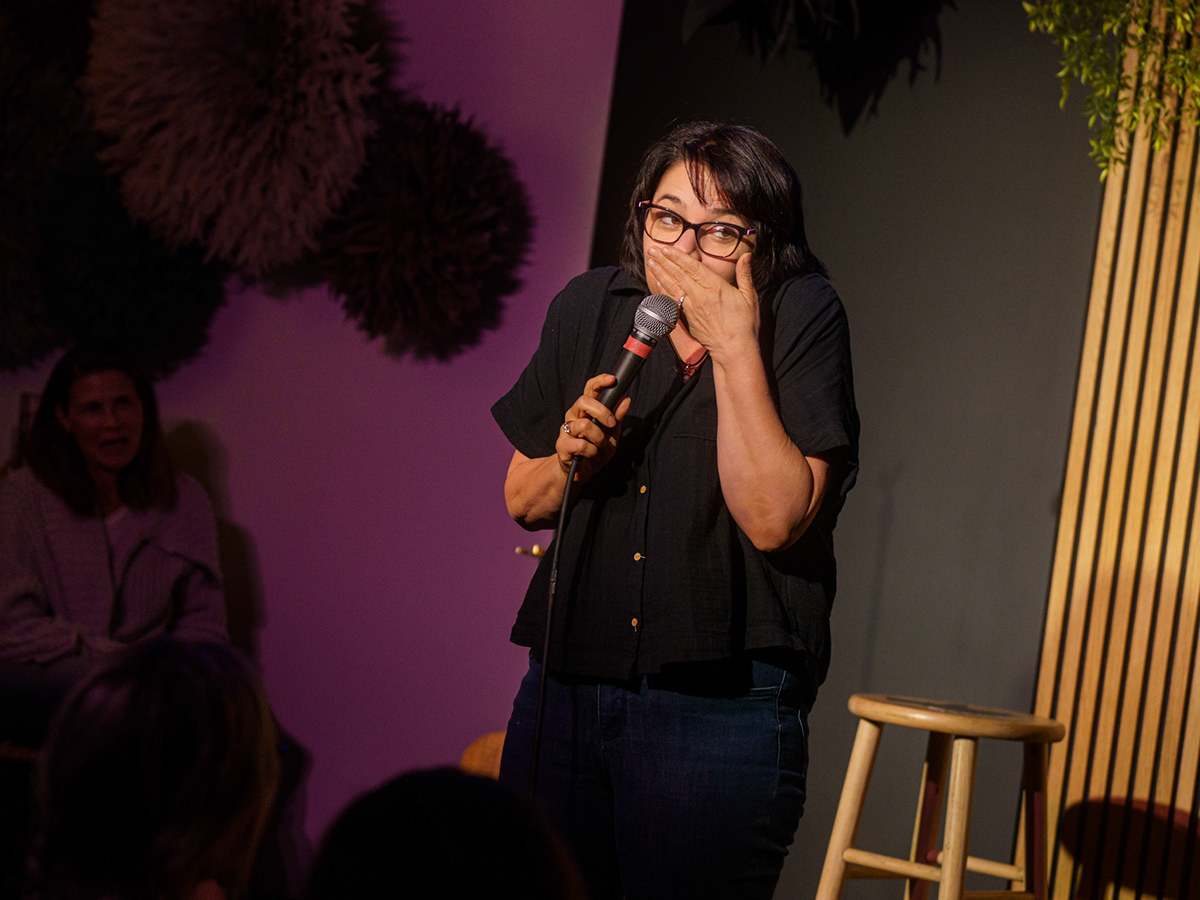
Image Credits
Keil Phillips (hug onstage) and Zoe Lee (pic on orange sofa). Others were personal. These are 2 pics of me with clients tho one might be
so if you or someone you know deserves recognition please let us know here.

